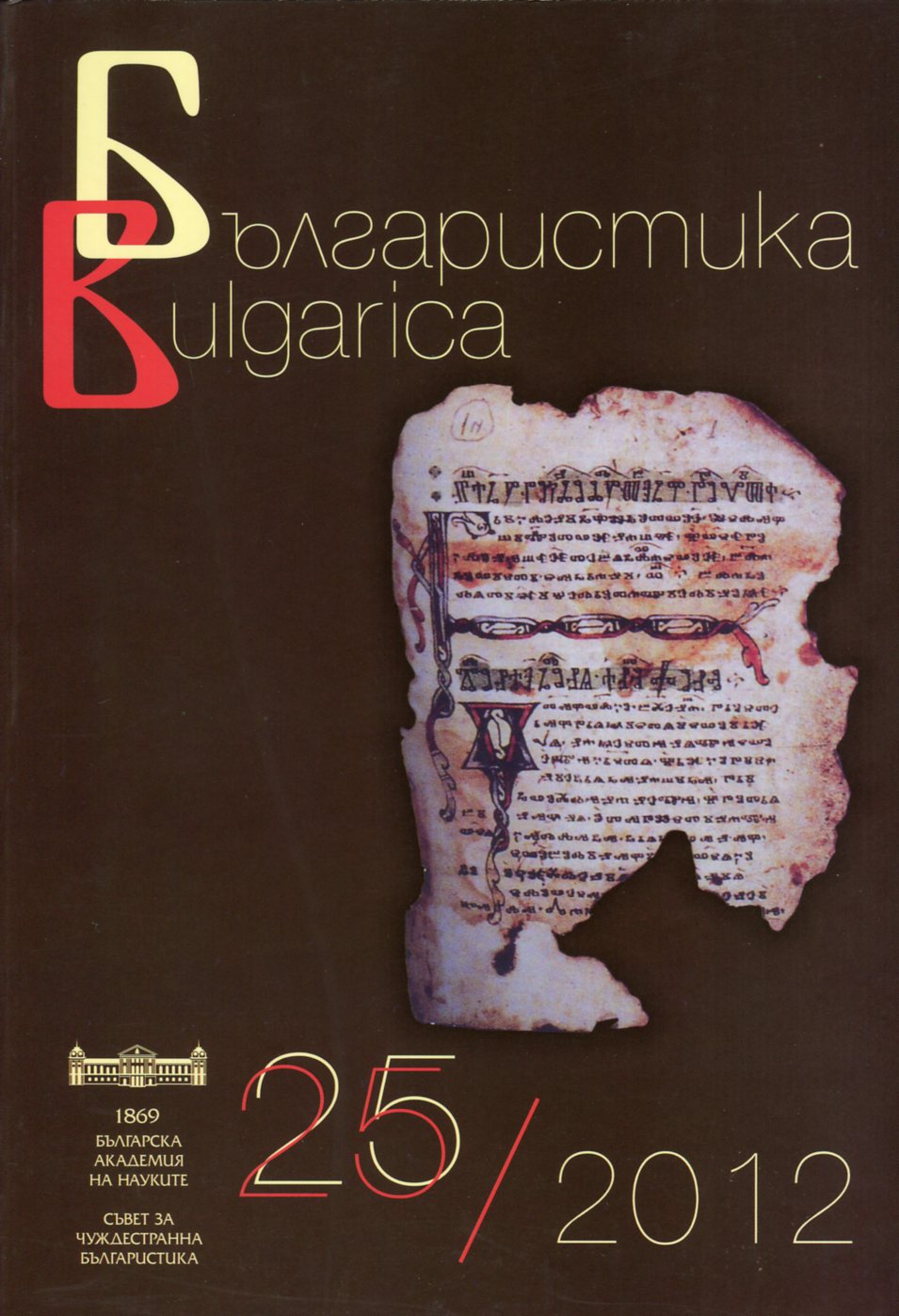
Книги 2012 г.
Selected bibliography in the field of Bulgarian Studies published in the current year
More...We kindly inform you that, as long as the subject affiliation of our 300.000+ articles is in progress, you might get unsufficient or no results on your third level or second level search. In this case, please broaden your search criteria.

Selected bibliography in the field of Bulgarian Studies published in the current year
More...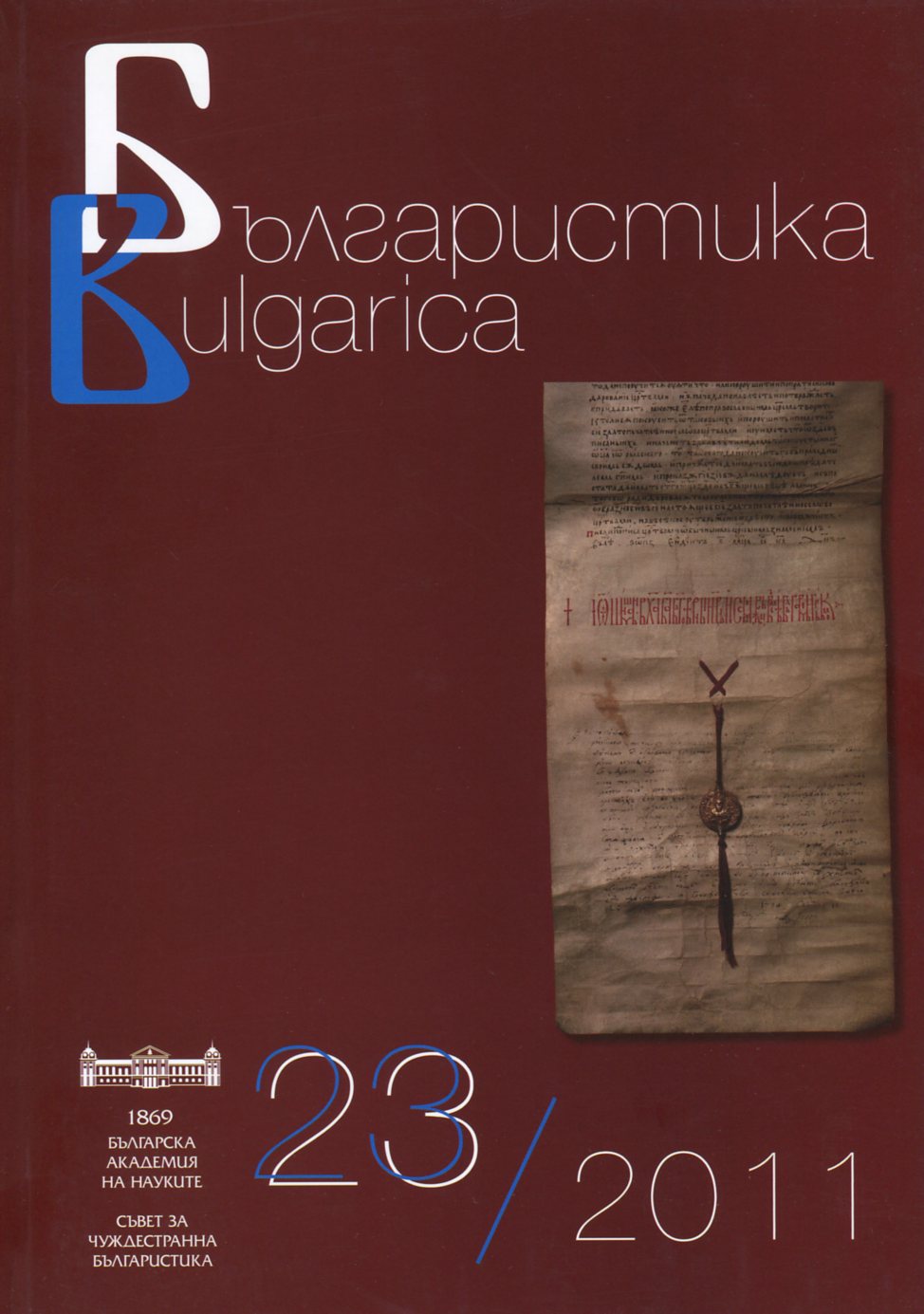
Defended PhD theses in Bulgaria in the field of linguistics, literature, history, folklore, ethnography and art studies
More...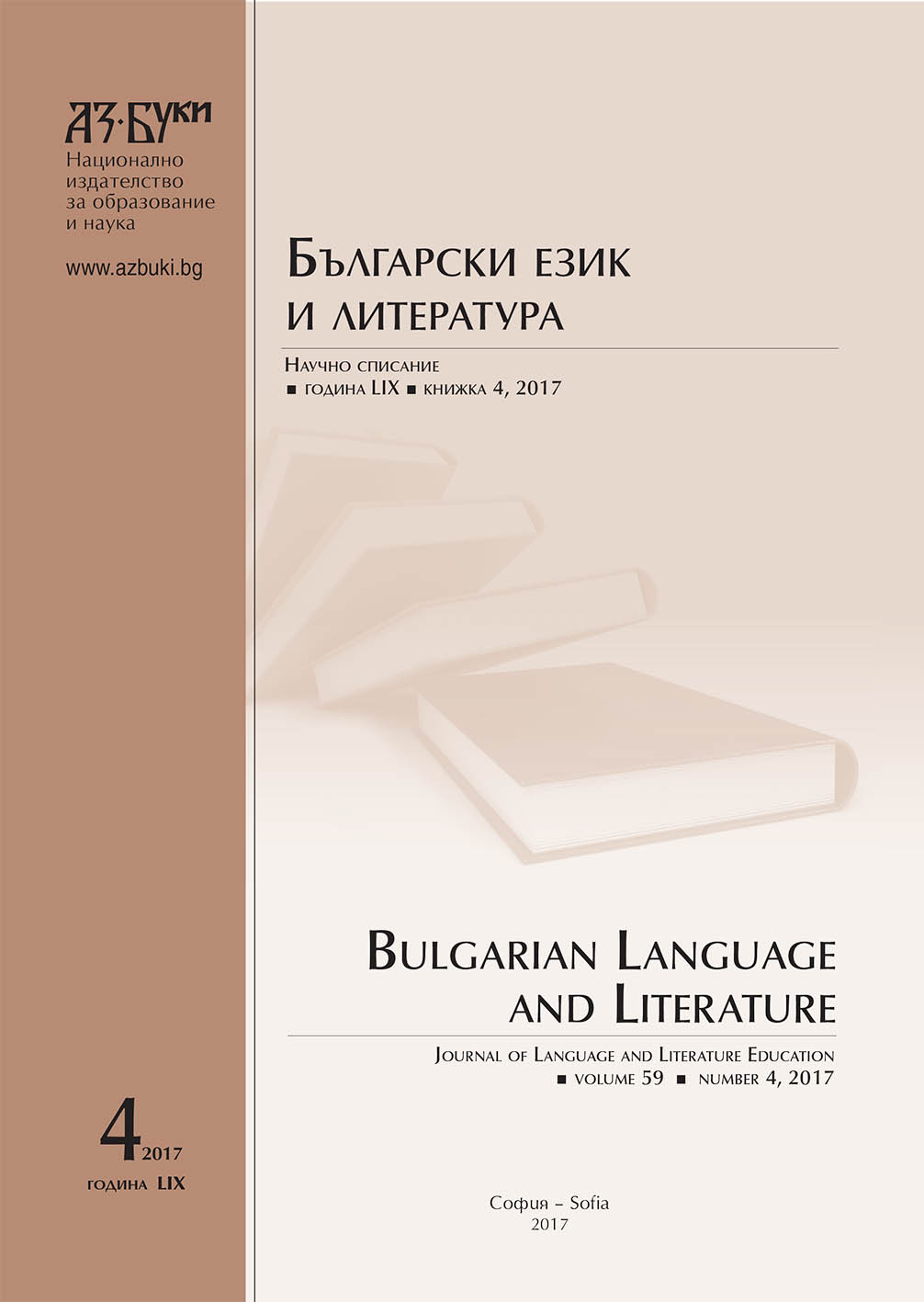
The article analyses the adverb in the first Bulgarian dictionary – „Slovary bolagrskogo yazika…“ (1885 – 1889) by the russian scientist Alexander Duvernois. For this purpose are used descriptive, comparative-historical and statistical methods. Article, focused on the adverb, is presented – key word, grammatical qualifier (notes), explanatory part and illustrations. Adverbs in the dictionary are classified according to their construction (simple, сompound, derivational) and origin (from adjectives, nouns, verbs, numerals). Different types of pronominal adverbs (interrogative, relative, indefinite, negative, summary and demonstrative) are reviewed.
More...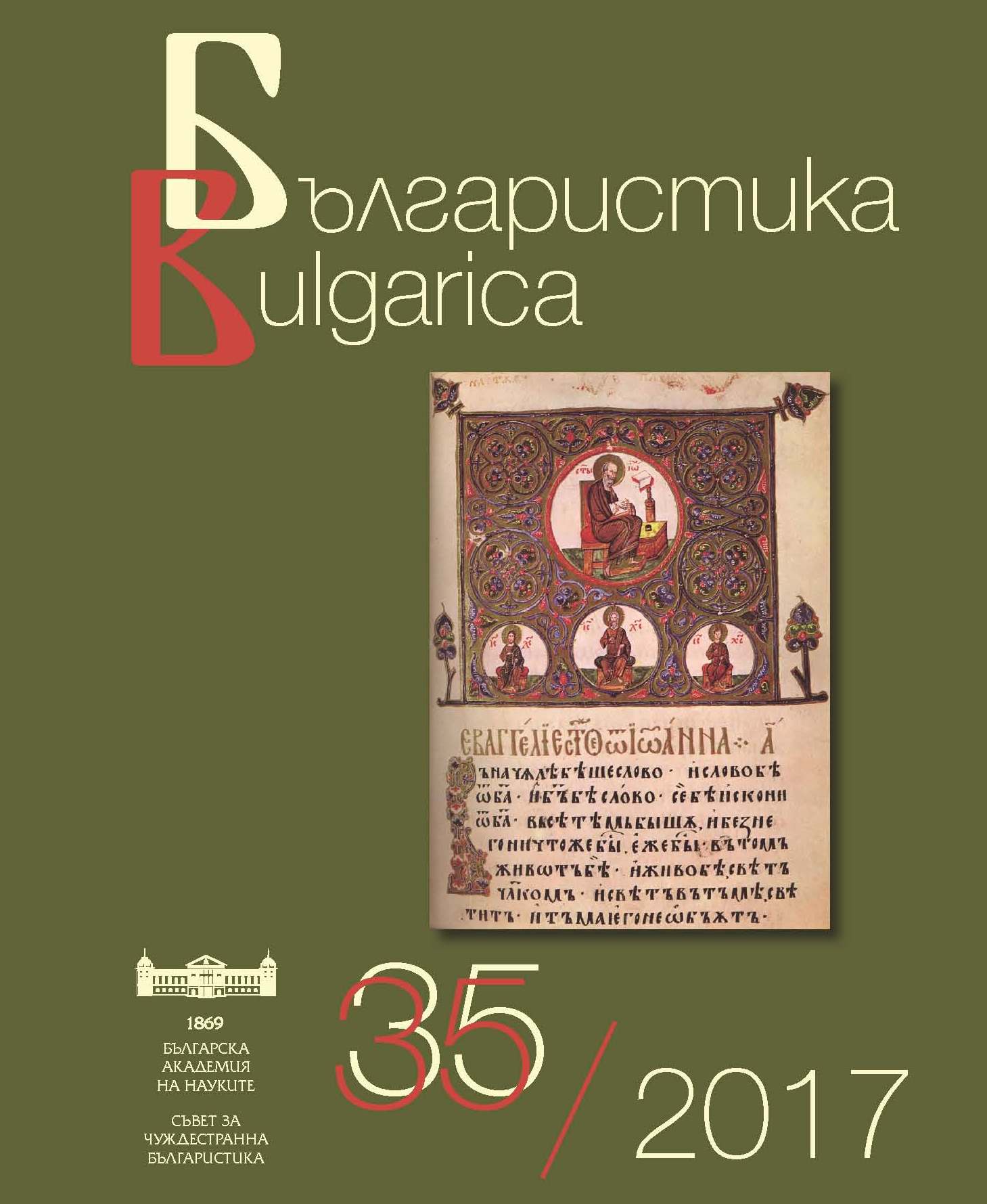
Content of the main Bulgarian scientific journals for the current year in linguistics, literature, history, folklore, ethnography, archaeology and art studies.
More...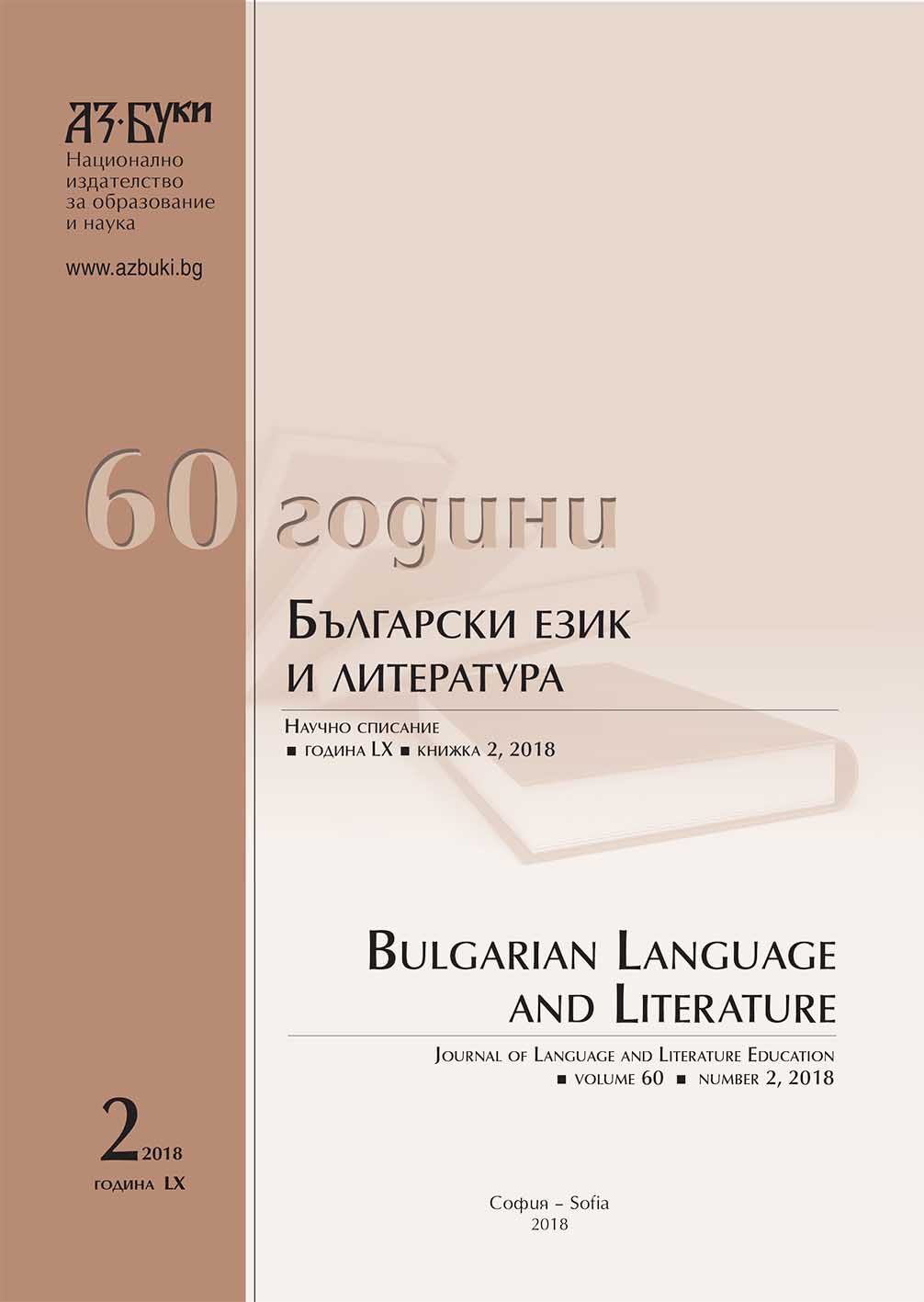
In recent decades, the resentment of the language, spoken by the Bulgarian politicians, is growing. The article suggests that the reason for this lays in the poor speech culture of the politicians. The official speeches are overrun with Turkish words, slang and forbidden words. In order to demonstrate their pseudo language proficiency, the speakers use English words and cite Latin sentences without any mastery, and this makes their speech even more inappropriate. The author defends the school language education by saying that adolescents spend with their teachers much less time than watching TV. However, the author reproaches those mother tongue teachers who turn the Bulgarian language classes into classes for teaching literature.The article criticises the publicly speaking people who perceive democracy as time when any violation of the regular language usage is allowed.
More...
The paper briefly presents the language situation in Bulgaria and the distribution of different languages on the territory of the country. The ways in which children learn first and second language are discussed, and the advantages of early age simultaneously learning of two languages is advocated. Further, the paper presents the influence of the media and the Internet for Bulgarian language acquisition. Finally, the role of education for the absorption of the Bulgarian language is presented.
More...
The focus of the article are the most significant moments of the activity of St. Cyril and St. Methodius which have undoubted connection with Bulgaria and the Bulgarian language, as the appearance of the first Slavonic alphabet the Glagolitic on the base of Bulgarian dialect from Thessaloniki area; the saving and the enrichment of the Cyrillo-Methodian literature in Bulgarian state after Methodius’s death in Moravia; the outset of the second alphabet the Cyrillic in Preslav; the spread of the Old Bulgarian literacy and literature all over the world.
More...
This article presents the latest national and international editions, that are prepared by the scientists of the Department of Bulgarian Dialectology and Linguistic Geography at the Institute for Bulgarian Language, Bulgarian Academy of Sciences. The author draws attention to their potential for use in the process of teaching in Bulgarian language and literature. He discusses various examples of morphological, phonetic and lexical dialect phenomena that are reflected in the art literature studied in the curriculum.
More...
The article presents the multi-volume Bulgarian Etymological Dictionary as one of the main academic works of the Institute for Bulgarian Language which can serve as a valuable practical aid in Bulgarian language teaching. In brief the character and the conception of the dictionary are clarified, and on specific examples the possibilities for wider use of the dictionary as a source of comprehensive knowledge of the Bulgarian language and the Bulgarian people are shown.
More...
The article presents the characteristics and functionalities of the new academic online resource Language Consultations on the Internet, developed in the Department of Modern Bulgarian at the Institute for Bulgarian Language at the Bulgarian Academy of Sciences. The online handbook has a wide user scope, provides information reliability and efficiency, plays an educational and promotional role. With its flexibility and openness it is another reliable resource for Bulgarian language teaching.
More...
The paper outlines some approaches that evoke active participation of members of a virtual community in development of teaching materials or for organising and conducting educational initiatives online. The two leading models for virtual products development and elaboration are featured - open-source model and crowdsourcing. Original community-sourcing approach is described, along with some results of its approbation in a virtual community focused on mathematics and computer science education for students.
More...
The article examines the Bulgarian language curriculum in secondary school as an internal systemic cause for failure and associated student dropout in the Bulgarian education system. The author states that the curricula do not offer a system of inter-related knowledge and the programs’ content does not correspond to the development characteristics of the children. In summary, the curricula’s shortcomings can be classified in 3 groups: 1. Problems, related to misjudged age characteristics of the adolescents. 2. Problems, associated with the system of teaching of specific linguistic knowledge. 3. Problems, related to the entire cognitive system (imbalance of the cross-subject connections).
More...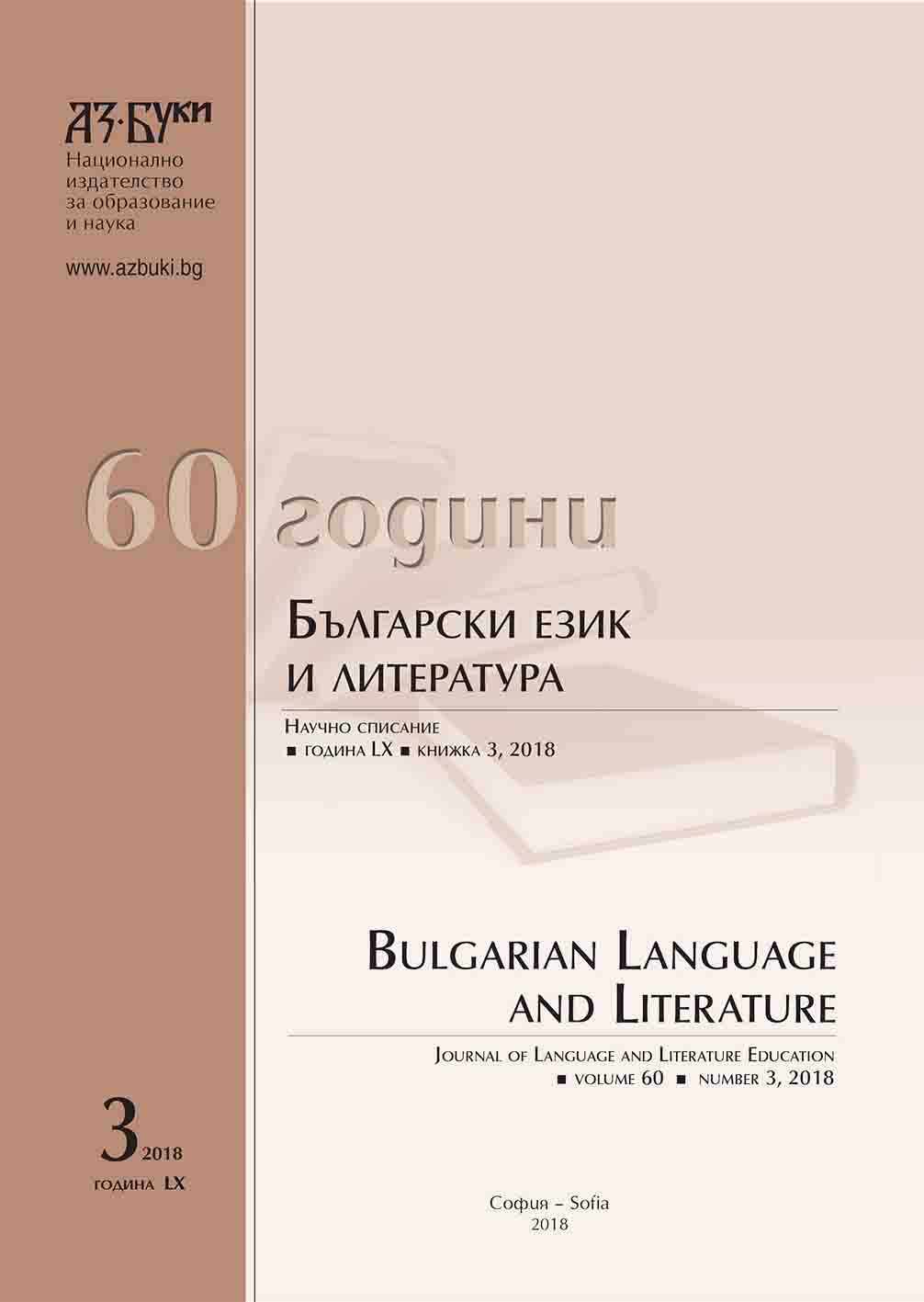
This article features on the experience of the teacher to change the perspective of teaching and studying the poetry of Vaptsarov – often stylistically marked with high rhetoric; even the most exalted phrases are referring to the internal flow of thoughts about the human being, his values, life, art, love and faith.
More...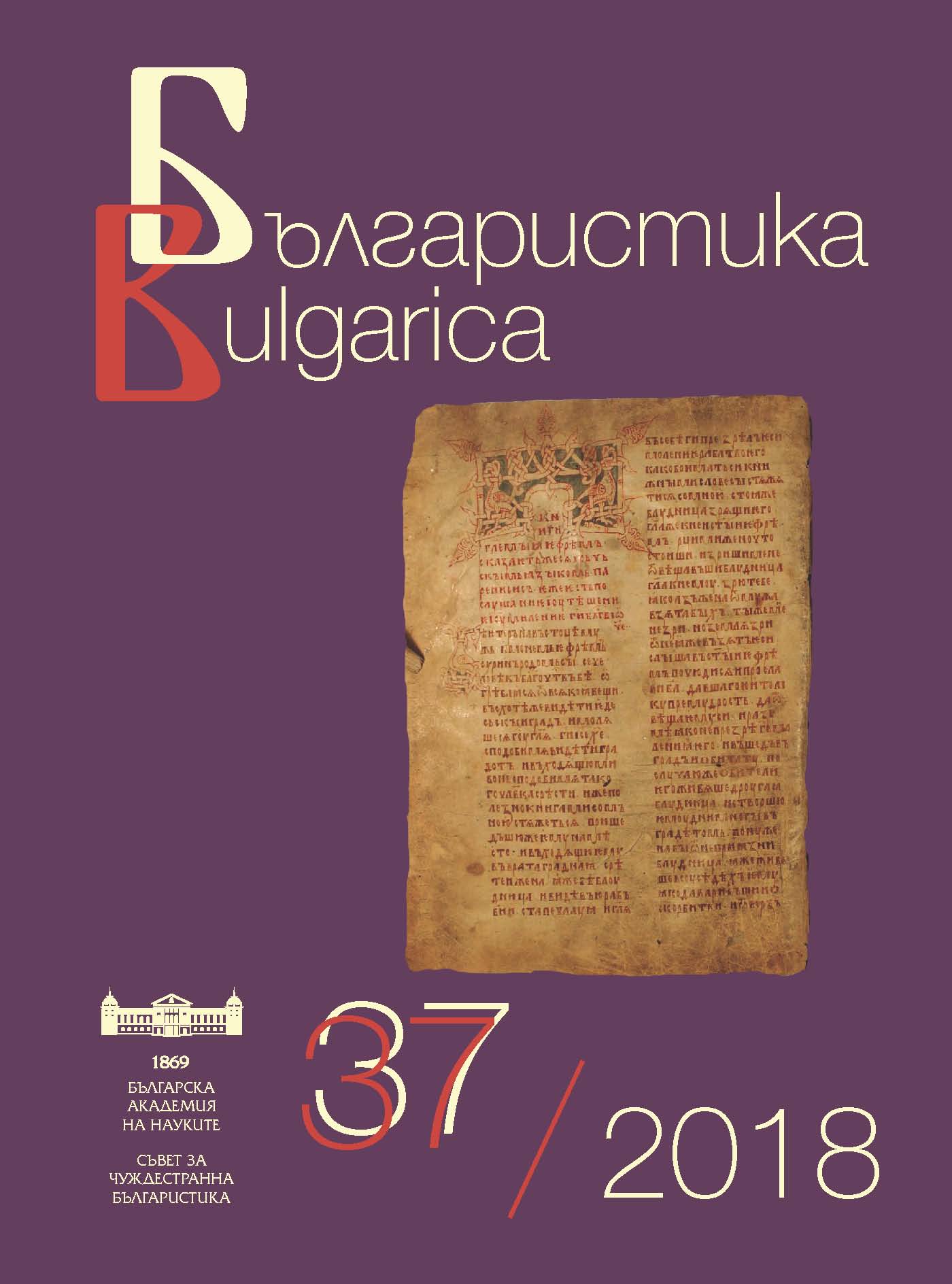
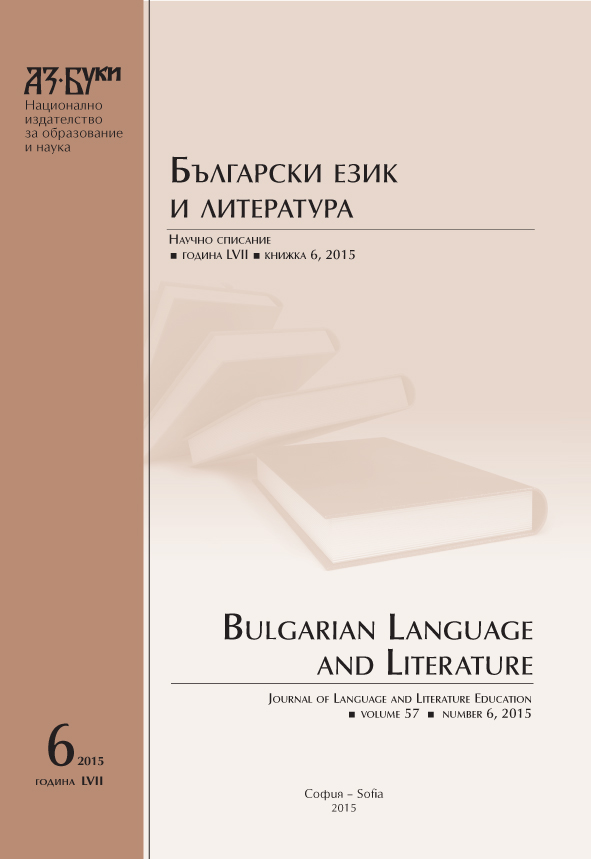
The paper discusses the problem of the lexical competence development in teaching Bulgarian as a foreign language and the objectives related to the lexical competence mastering. The thesis of the paper is that the lexical competence development should be carried out according to the linguistic personality of the student. In this respect methodological ideas for developing the lexical competence are proposed
More...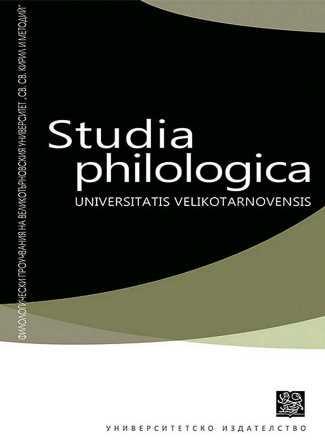
The paper provides an analysis of prominent Slavic gender literary works from the past two decades, with the focus being on the portrayal of marginalized individuals who experience discrimination. It explores how representatives of this marginalized subculture strive for societal acceptance and the challenges they encounter during the journey of recognition and embracing their unique identities. Furthermore, the text investigates the prevailing attitudes toward LGBTQ+ individuals within the Slavic cultural context. Its objective is to identify commonalities in plot structures and conflict scenarios found in these literary works.
More...
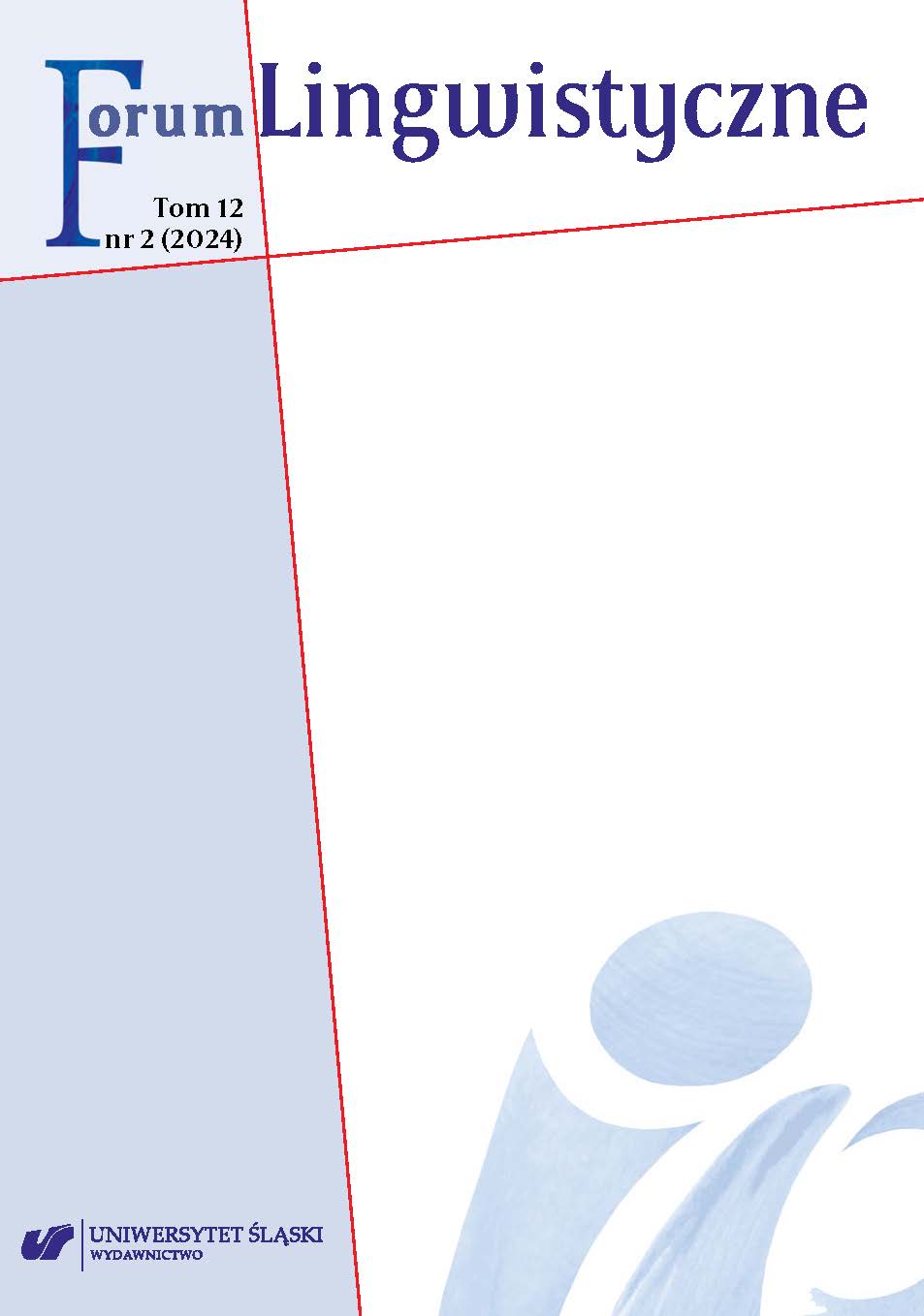
The analysis is an attempt to compare the genetic development of the spirants [ś] and [ź] in Polish and Montenegrin, and is a kind of Polish response to the theses put forward by the Montenegrin researcher Radoslav Rotković and later developed by the Montenegrinist Vojislav Nikčević regarding the common origin of these sounds in both languages. In view of the problem posed, the starting point is to present the theses put forward by Rotković in the monograph Odakle su došli preci Crnogoraca [“Where did the ancestors of Montenegrins come from”] and the evidence in support of them, as well as their linguistic development by Nikčević. Then, their reception by the Montenegrin and Polish Slavic community is analysed in order to compare the genesis of the Polish and Montenegrin spirants [ś] and [ź] in the light of previous accepted research and its results. This comparison speaks against the thesis put forward by Rotković, as it indicates different paths of the appearance of the spirants [ś] and [ź] in the Montenegrin and Polish languages.
More...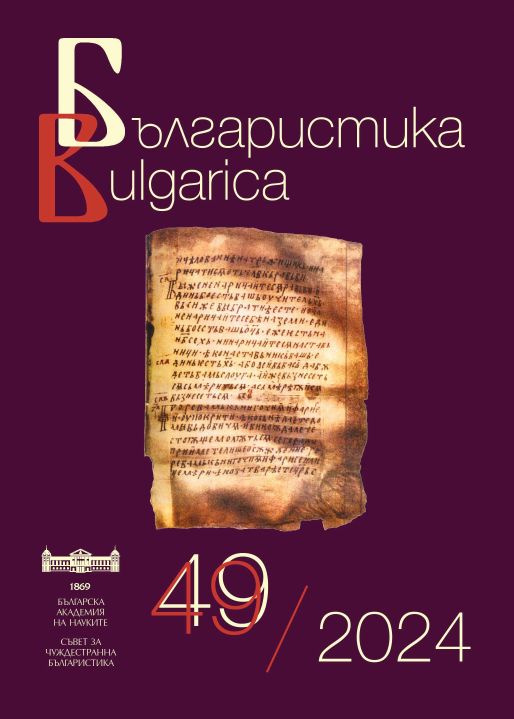
Data about scientific events in the field of the humanities in Bulgaria in the second half of 2024.
More...